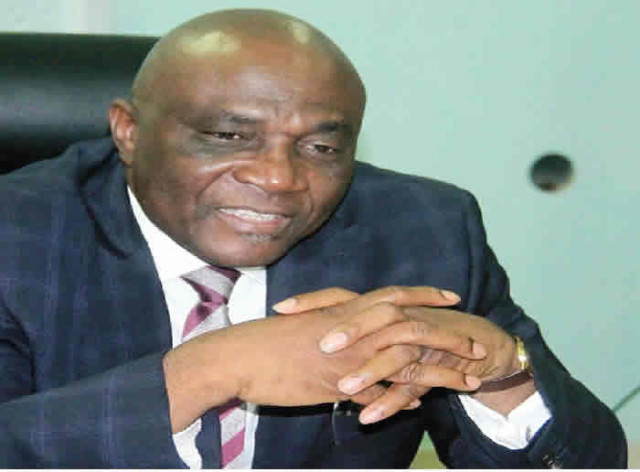The Presidency has said contrary to job loss fears and perceived marginalisation of the North, the tax reform bills currently before the national assembly will benefit all states and harmonise the country’s tax laws for greater efficiency.
It said it became necessary to address the misunderstandings and misgivings around the tax reform already embarked upon by the administration following a meeting of the Northern Governors last Monday.
The Special Adviser to the President on Information and Strategy, Bayo Onanuga, argued this in an explainer titled, ‘Explainer: Proposed tax reform bills not against the north; they will benefit all states’ on Thursday.
At a meeting on October 28, 2024, Governors of the 19 Northern States, under the platform of the Northern Governors’ Forum, rejected the new derivation-based model for Value-Added Tax distribution in the new tax reform bills before the National Assembly.
The meeting also had traditional regional rulers, led by the Sultan of Sokoto, His Eminence Muhammadu Sa’ad Abubakar III, in attendance.
A communiqué read by the Chairman of the forum, Governor Muhammed Yahaya of Gombe State, said the proposition negates the interest of the North and other sub-nationals.
President Bola Tinubu and the Federal Executive Council recently endorsed new policy initiatives to streamline Nigeria’s tax administration processes.
The Federal Government said the new laws are meant to enhance efficiency and eliminate redundancies across the nation’s tax operations.
The reforms emerged after a review of existing tax laws since August 2023. The National Assembly is considering four executive bills containing these tax reform efforts.
First is the Nigeria Tax Bill, which aims to eliminate unintended multiple taxation and make Nigeria’s economy more competitive by simplifying tax obligations for businesses and individuals nationwide.
Second, the Nigeria Tax Administration Bill proposes new rules governing the administration of all taxes in the country. Its objective is to harmonise tax administrative processes across federal, state and local jurisdictions for ease of compliance for taxpayers in all parts of the country.
Third, the Nigeria Revenue Service (Establishment) Bill seeks to rename the Federal Inland Revenue Service as the Nigeria Revenue Service to better reflect the mandate of the Service as the revenue agency for the entire federation, not just the Federal Government.
Fourth, the Joint Revenue Board Establishment Bill proposes the creation of a Joint Revenue Board to replace the Joint Tax Board, covering federal and all states’ tax authorities.
The fourth bill also suggests establishing the Office of Tax Ombudsman under the Joint Revenue Board, serving as a complaint resolution body for taxpayers.
The Presidency says the proposed laws will not increase the number of taxes currently in operation. Instead, they are designed to “optimise and simplify existing tax frameworks.”
Onanuga noted, “It is instructive to note that these proposed laws will not increase the number of taxes currently in operation. Instead, they are designed to optimise and simplify existing tax frameworks.
“The tax rates or percentages will remain the same under these reforms, as they focus on ensuring a more equitable distribution of tax obligations without adding to the burden on Nigerians.
“The reforms will not lead to job losses. On the contrary, they are structured to stimulate new avenues for job creation by supporting a dynamic, growth-oriented economy. Importantly, these laws will not absorb or eliminate the duties of any existing department, agency, or ministry. Instead, they aim to harmonise revenue collection and administration across the federation to ensure efficiency and cooperation.”
The Presidency noted that currently, Nigeria’s tax administration lacks coordination among federal, state, and local tax authorities, often resulting in overlapping responsibilities, confusion, and inefficiency. Without reform, this inefficiency will persist.
It said the proposed laws aim to “coordinate efforts between different tiers of government, resulting in better tax resource management and greater clarity for taxpayers.”
Under existing laws, taxes like Company Income Tax, Personal Income Tax, Capital Gains Tax, Petroleum Profits Tax, Tertiary Education Tax, Value-Added Tax, and other taxing provisions in numerous laws are administered separately, with individual legislative frameworks.
However, “The proposed reforms seek to consolidate these multiple taxes, integrating CIT, PIT, CGT, VAT, PPT, and excise duties into a unified structure to reduce administrative fragmentation,” said Onanuga.
On the proposed derivation-based VAT distribution model, which the Northern Governors oppose, the Presidency insisted that “the new proposal, as enunciated in the Bill, is designed to create a fairer system.”
It explained that the current model for distributing VAT is based on where the tax is remitted rather than where goods and services are supplied or consumed.
“The ongoing tax reform seeks to correct the inherent inequity in the current derivation model as a basis for distributing VAT revenue.
“The new proposal before the National Assembly outlines a different form of derivation which considers the place of supply or consumption for relevant goods and services.
“This means that states in the Northern region that produce the food we eat should not lose out just because their products are VAT-exempt or consumed in other states,” Onanuga stated.
According to the Presidency, these reforms are critical to improving the lives of Nigerians and were not put forward by President Tinubu to undermine any part of the country.
“There is no better time than now for the National Assembly to give due consideration to these bills that will overhaul our tax systems and create the revenue all the tiers of government require to fund the development our country and people urgently need,” it concluded.




















